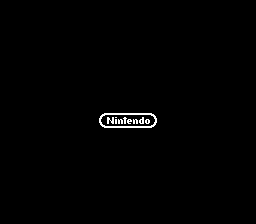I’ve been getting some SNES Mini and 1-chip consoles to repair lately. The most common issues are:
- Black screen on all games
- Black screen on some games. Other games, such as Mario Kart, freeze at the publisher splash screen
The latter issue is exactly the same problem as what happens when you simply remove the sound module from an SHVC console. It’s seems to be caused when the CPU can’t communicate with the sound hardware for any reason. In some cases, it’s due to some broken traces on the board somewhere. But as I’ve mentioned before, it’s often due to a failed APU. On GPM-01/02 and RGB-01/02 revisions it can also be due to a failed S-SMP.
The first problem, however, is something that I can’t normally fix. Unless there’s some obvious problem, such as rust or corrosion in the cartridge slot or some broken traces, then I just give up on those boards and set them aside.
Something I discovered quite by accident, however, is that a bad APU can actually cause the first problem as well as the second.
Recently I grabbed one of those black screen SNES mini boards to steal its APU for a 1-chip board I was repairing that had a known bad APU (it would freeze at the “KOEI” screen). Once I installed the APU from the black screen SNES mini into the 1-chip board, the 1-chip board also began displaying only a black screen, even on games that were previously loading to the publisher screen and then freezing. At first I thought I must have accidentally left a solder bridge connecting some legs of the chip or screwed up in some other way with bad soldering, but after checking and rechecking, that wasn’t the issue. I then removed the APU and the board started loading games and then freezing again at the publisher screen, just as it had been doing originally.
To test my theory that the APU itself was causing the black screen issue, I went over to the SNES mini board from which I had salvaged the APU. I powered it on without any APU installed at all and, sure enough, it would load games up to the publisher’s logo and then freeze.
To be certain, I took one more known good 1-chip board that was only missing an APU and installed the APU from the Mini board into it. It started showing just a black screen when I installed it. Once removed, it again loaded games and froze at the publisher logo.
Finally, I went over to my stack and found two 1-chip boards that I had labelled “black screen”. I removed the APUs from both of them. One of them started loading games and freezing at the publisher screen, showing that it had the same problem as the Mini board (i.e. just a bad APU). The other board, unfortunately, still just showed a black screen. It must have had some other issue.
But the major point here is that when troubleshooting boards that show only a black screen, it’s possible the APU is actually causing the issue. I used to think the only issue caused by a bad APU was the loading and then freezing at the publisher splash screen issue, but this experience taught me that I was wrong.



Hi there, I stumbled upon your site and was wondering if you knew what the issue could be. I recently bought a Super Famicom that had known sound issues. When I power it on and use it for a few minutes it goes from normal sound output, to slightly crackly sound, and eventually no sound. If I turn it off and turn it back on it’ll still have no sound. If I return to it hours later the sound is back but the same sound issues return. What could it be? I’ve been told that it might need to be recapped. Thoughts?
Haha, I actually saw your post in the repair thread on /vr/ yesterday, but I didn’t respond because I’m not sure what would cause that issue. Usually bad capacitors in an SNES cause darkened video or wavy lines, similar to what you see if you use a bad power supply. Sometimes you can hear buzzing in the audio when certain caps are bad, but I’ve never personally seen a console where the audio cuts out entirely. I guess it makes sense that it could the problem though, particularly since you say the issue gets worse over time and then if you leave it alone for a while it works again temporarily.
Replacing all the capacitors does require soldering, but if it’s an SHVC motherboard then it’s possible it’s just the few caps on the SHVC sound module that are bad. If so, you can remove the two screws that secure it in place, unplug the sound module, and swap it for one from a known working console. If the issue is solved, then you know the original sound module was bad.
It’s also conceivable the S-SMP chip could be the problem. On SHVC systems it’s on the sound board, whereas on later revisions it’s soldered directly to the motherboard. Although I’ve never seen a console with the same problem as yours, I have seen a handful with a bad S-SMP. When that happens the system will still play games but there won’t be any sound at all. It’s just speculation, but maybe if the chip is on its way out or overheating, then maybe you could end up with a problem like yours.